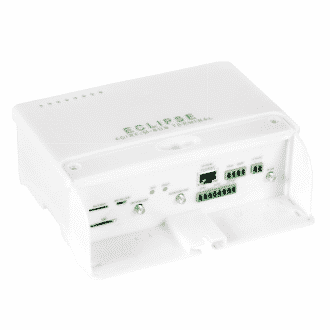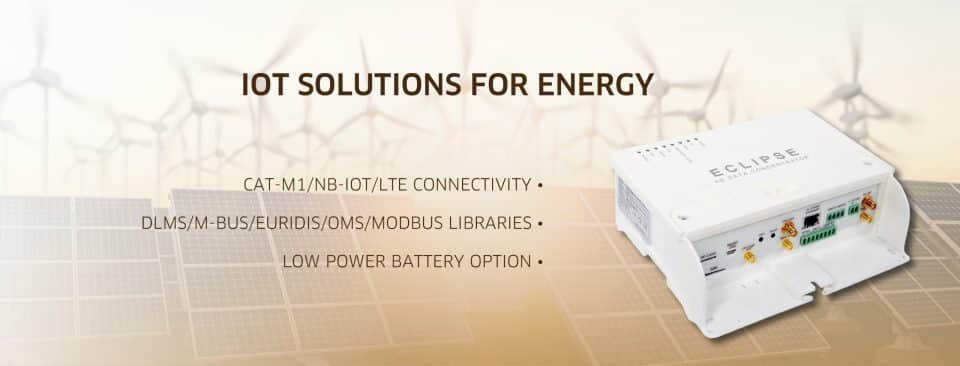Data concentrators are a critical node of IoT (Internet of Things) projects, helping connect several devices to a central server.
Data concentrators facilitate a key technique to concentrate the communication and management of a multitude of field sensors into one single device. This allows them to facilitate aggregate information from different field devices, thereby reducing the cost of operation.

Choosing a Data Concentrator
IoT Data Concentrators can be of different models and types, depending on the interface data is collected and application topology. To ensure that you have the right data concentrator, below are some of the factors you should consider:
- Connectivity
When buying a data concentrator, you must put into consideration which network technology protocol at the physical layer would fit best to provide communication between field devices and cloud servers.
For deployments requiring speed, high-speed cellular offerings, LTE 4G and 5G is the only group to consider. 5G provides speeds that rival what is available in many homes and businesses and enough speed to allow for real-time solutions. It offers almost real-time latency levels. The downside for these faster networks is that these devices are not ideal for deployments that are powered by batteries or are power conscious.
Low-speed cellular options such as LTE CAT-1, LTE CAT-M are ideal for applications that need a reliable connection but isn’t all about speed. NB-IoT (or NB1) will be the optimal choice for the extremely cost-conscious customer.
Ethernet is the old reliable wired connection over IP, where it still works well for many applications.
- Interface and Protocol Support
Depending on the IOT segment you’ll be implementing, hardware interface and protocols needed may change. Following hardware interfaces and application layer protocols may be used to build the field area network (FAN)
- Radio Frequency (RF) (e.g mesh, point-to-multipoint, etc.) is a physical interface to provide connectivity between field devices and data concentrators. It is widely used in various IoT segments, especially smart metering. However, it is limited by signal strength and distance to field devices.
- Serial ports such as RS-232 and RS-485 are other hardware standards widely used in the Industrial world, especially in smart metering to wire connection between meters and data concentrators.
- USB is not as popular as it may have been for IoT devices as they have problems such as vibration issues for rugged applications.
- Smart metering data protocols
At the application layer energy meters use data communication protocols to provide communication to the data concentrators. Smart metering data protocols often vary by region such as DLMS/COSEM, IEC1107, Euridis, Power Line Communication-PLC (PRIME, G3, OSGP), Modbus for electricity metering and M-Bus and Open Metering Ssystem (OMS) for water metering. Eclipse LTE Data Concentrators offer a wide variety of meter reading protocols such as DLMS/COSEM, M-Bus, OMS, Euridis, Modbus, IEC1107 etc. - IoT data protocols
IoT data protocols provide communication with hardware through data protocols such as MQTT, CoAP, HTTP, UDP/IP, TCP/IP, IPv4, IPv6 etc. At the application layer, Eclipse Data Concentrators provide communication with back-end systems such as MDM (Meter Data Management) Systems through protocols such as MQTT, CoAP etc.
One thing to remember is that you may not know what port offerings will be needed for the next 5 to 10 years on your projects. To help, most LTE Data Concentrators offer more than one of these offerings on a single device.
- Operating System and Programmability
Operating system of your data concentrator can affect its performance. We mostly recommend data concentrators running on Linux-based systems. This is because the operating system is accurate, safe, allows real time multi-tasking and open source hence has reduced operating cost.
Configuration adaptability: Especially smart metering data concentrators should allow bidirectional communication to cloud and devices for local and remote configuration and make maintenance actions possible.
Eclipse Data Concentrators are smart, allowing for both onboard programming and extensive computing power to write scripts and coding.
- Device Management & Scalability
IT departments love the flexibility IoT Gateways give them. However, it brings up more work. Today’s gateways offer some incredible tools to remotely manage devices like firmware levels, settings, and security levels. Most gateways facilitate one-to-one management. This works great if you have few devices, but not in case of hundreds or thousands. Data concentrators has the capacity and ability to remotely manage hundreds and even thousands of meters, sensors and devices. You can make changes to all devices at once, such as changing a setting or upgrading firmware.
Gateways and Data Concentrators should also offer high security support through various methods of encryption/decryption.
- Physical Requirements
The choice of data concentrator should also be designed to handle the work environment’s rigors. Operating temperature is one of the most important physical parameters that has to be considered. An industrial gateway offers more protection than a consumer-grade device that are only prone to overheating on a hot summer day, whereas industrial grade data concentrators should deal with the most challenging conditions. They should be able to operate in the areas of extreme heat, high humidity levels, extreme cold, unheard vibration levels.
- Powering the Data Concentrator
Here are three main types of powering:
- AC power is the most common power source everywhere.
- DC power requires the product to be a bit more flexible. This is the method of choice for in-vehicle installations and most industrial applications.
- PoE, or Power over Ethernet, allows you to potentially move the Gateway closer to the outside, which maximizes coverage.
Data Concentrators should also be able to work on backup. Backup batteries shall be capable of being replaced without opening the Data Concentrator case.
Price of Data Concentrators
The cost of a data concentrator will depend on a lot of factors such as application areas and the features to be used. These factors should also influence the choice of the data concentrators. Eclipse offers various LTE Data Concentrators, designed for smart metering, that can help address almost any functionality.


